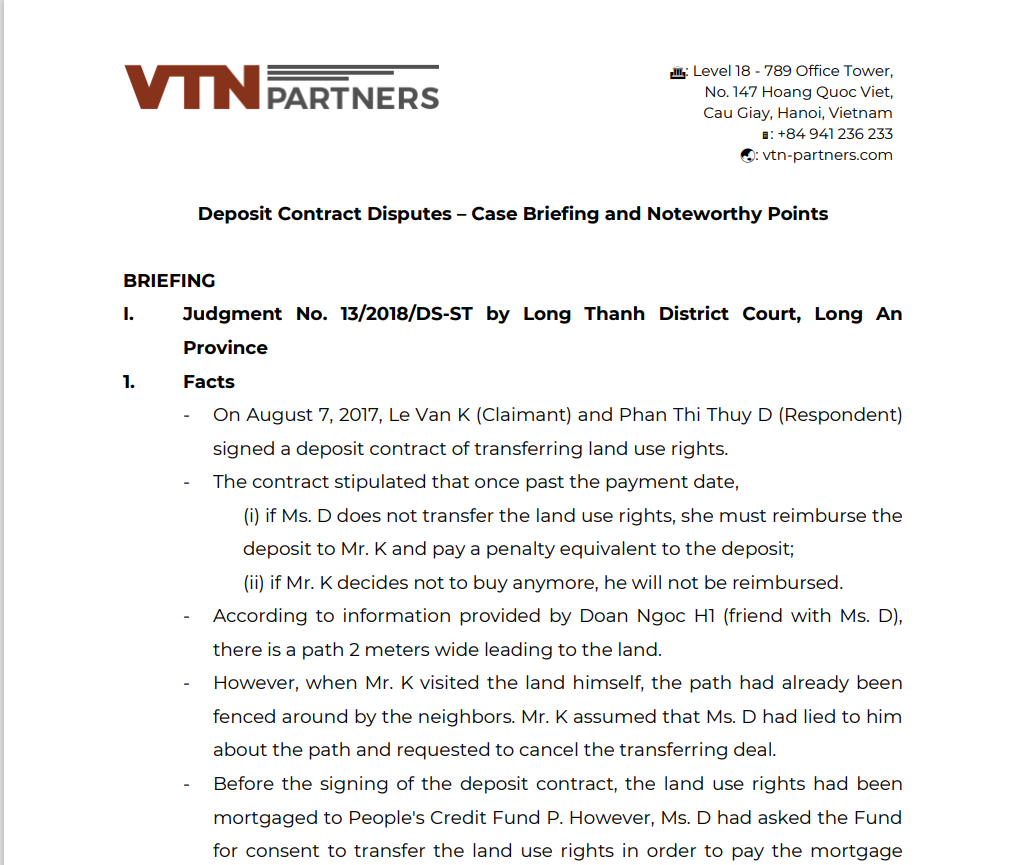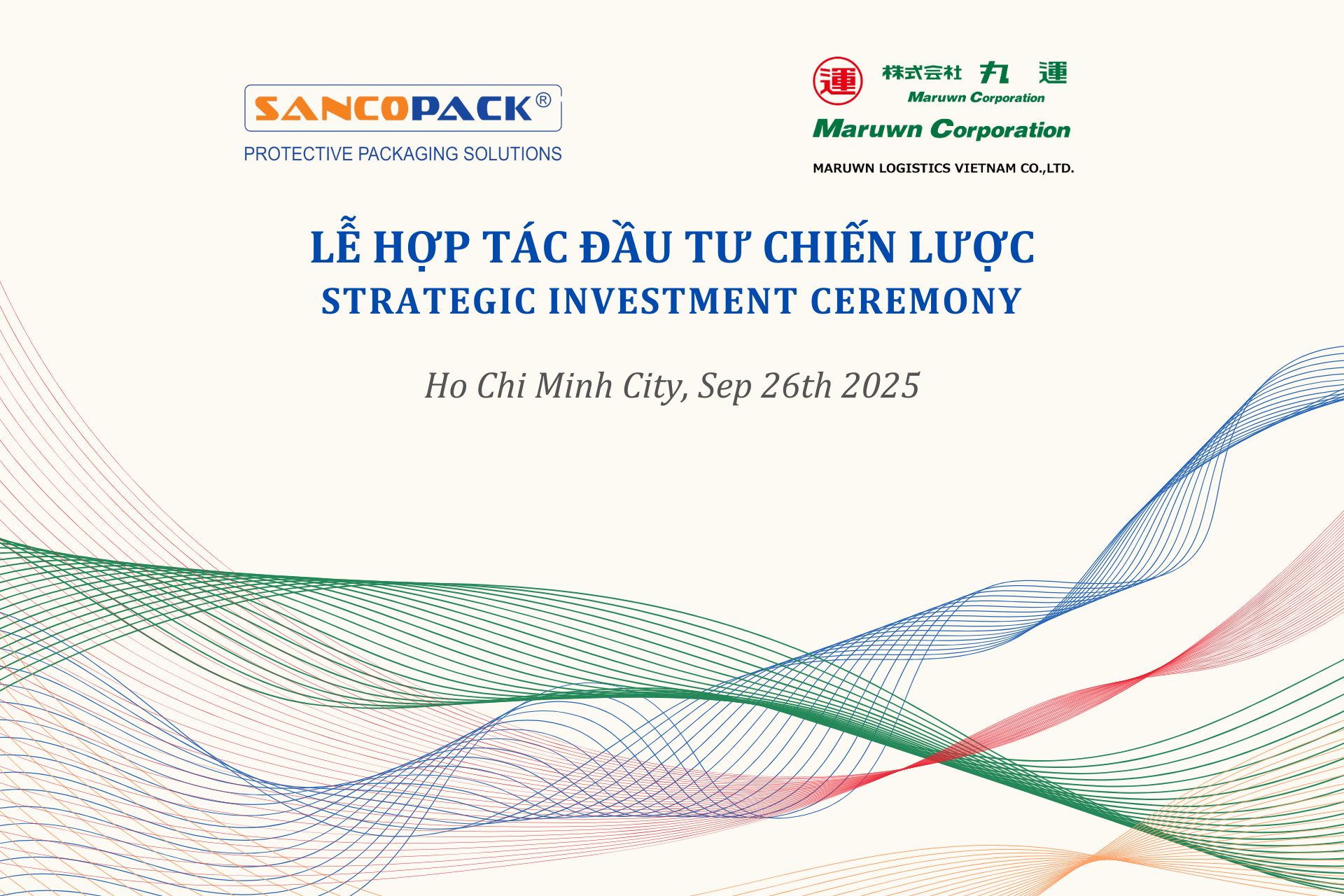Abstract: Third-Party Funding (TPF) has gained increasing traction globally as a mechanism that enables parties to access justice in arbitration without bearing the high costs of legal proceedings. While many jurisdictions have developed regulations or guidelines to manage the legal, procedural, and ethical issues associated with TPF, Vietnam currently lacks a specific legal framework governing its use. This paper explores the concept of TPF in the context of international arbitration, evaluates the opportunities and challenges of introducing TPF into Vietnam’s commercial arbitration landscape, and assesses the implications of its unregulated status. Drawing from comparative international practices, the paper recommends legal reforms that would help Vietnam establish a transparent, efficient, and reliable TPF framework.
- Introduction
In recent years, arbitration has gained significant prominence in Vietnam as a preferred method for resolving commercial disputes. Compared to litigation, arbitration provides several advantages—particularly flexibility, neutrality, and party autonomy—which make it highly attractive to businesses, especially in cross-border or complex commercial environments.
However, despite its benefits, a major barrier to broader adoption of arbitration in Vietnam is the significant legal cost involved, which can be prohibitive for individuals and small to medium-sized enterprises (SMEs). Against this backdrop, Third-Party Funding (TPF) has emerged internationally as a financial mechanism to support access to arbitration. Through TPF, a non-party to the dispute agrees to finance legal proceedings in exchange for a share of the award if the claim is successful. This model has been embraced in several jurisdictions but remains unregulated in Vietnam.
This paper seeks to assess the current legal vacuum surrounding TPF in Vietnam, examine key issues such as confidentiality, disclosure, and funder qualification, and offer legal and policy recommendations by reference to international best practices.
- Overview of TPF in International Arbitration
TPF is a financing arrangement where an independent third party, unconnected to the dispute, agrees to cover the legal costs of a claimant or respondent in arbitration. In return, the funder typically receives an agreed percentage of any award or settlement recovered. Importantly, most TPF agreements are non-recourse, meaning that the funded party is not obligated to repay the funder if the claim is unsuccessful.
Funders are commonly institutional investors, including hedge funds, banks, insurance companies, and specialized litigation finance firms. Although funders do not actively participate in the strategic direction of the dispute, they require sufficient access to information to assess the merits and manage risk exposure.
TPF is especially prevalent in commercial arbitration due to the high value of claims, enforceability of arbitral awards under the New York Convention (1958), and the binding nature of outcomes. While claimants are more commonly funded, respondents may also benefit from TPF, particularly when filing counterclaims or facing financial hardship.
Returns for funders vary significantly, often ranging from 60% to 500% of the original investment. For funded parties, this financing model provides an opportunity to pursue meritorious claims with minimal upfront financial risk.
- Legal Framework for TPF in Commercial Arbitration in Vietnam
Vietnamese law currently does not regulate TPF in arbitration. However, there is no explicit prohibition against it. Article 4 of the Law on Commercial Arbitration 2010 affirms party autonomy as a guiding principle, granting disputing parties the freedom to agree on procedural matters, including external financial arrangements.
Despite this general flexibility, Vietnam lacks any formal recognition or definition of TPF. Consequently, Vietnamese courts and arbitral institutions are not equipped to deal with the legal implications of TPF arrangements, including the rights and obligations of funders. This regulatory gap creates uncertainty for both domestic and international stakeholders considering arbitration in Vietnam.
One notable exception is found in the EU-Vietnam Investment Protection Agreement (EVIPA), which contains basic provisions on TPF in investment arbitration. Articles 3.28 and 3.37 of the EVIPA require the funded party to disclose the existence, identity, and nature of their TPF arrangement to both the opposing party and the tribunal. However, these provisions are limited in scope and do not address broader issues such as funder qualifications, conflicts of interest, confidentiality, or control over proceedings.
- Concerns Related to TPF and Lessons from International Practice
4.1. Balancing Confidentiality and Disclosure
One of the most valued features of arbitration is confidentiality. However, the involvement of a third-party funder inevitably creates pressure to disclose information that would otherwise remain private. During both the due diligence phase and throughout the proceedings, the funder requires access to case details—including legal strategy, evidence, and procedural updates—to make informed funding decisions.
This disclosure raises risks of breaching legal privilege and confidentiality. To address such concerns, the Law Society of Singapore’s Guidance Note No. 10.1.1 advises legal practitioners to strictly adhere to their professional obligations under Rule 6 of the Legal Profession (Professional Conduct) Rules 2015. These rules prohibit disclosure of client information without informed consent.
As a safeguard, clients should be advised to enter into a Non-Disclosure Agreement (NDA) before sharing any documents with potential funders. The NDA should confirm that documents remain confidential and privileged, are disclosed solely for funding purposes with the client’s consent and must be returned if no agreement is reached. Similar clauses should be included in the final funding agreement.
Furthermore, disclosure of the existence of TPF to the arbitral tribunal is increasingly recognized as necessary to prevent conflicts of interest. In tightly knit arbitration circles, the risk that a funder may have direct or indirect ties to an arbitrator is not insignificant. Undisclosed TPF arrangements may lead to post-award challenges, including annulment or enforcement refusals.
The Paris Bar Council, in its 2017 resolution, recommended that counsel advise clients to disclose TPF arrangements and warn the clients of the potential consequences of nondisclosure. In jurisdictions such as Hong Kong and Singapore, such disclosure is mandatory and must include the identity and address of the funder. These practices reflect a careful balance between maintaining confidentiality and preserving the integrity of the arbitral process.
4.2. Determining the Criteria for a qualified Third-Party Funder
The absence of criteria governing who can operate as a third-party funder poses a serious risk to the legitimacy and stability of TPF in Vietnam. To ensure that funders are financially and legally capable of fulfilling their obligations, a minimum capital requirement should be imposed. Without this safeguard, undercapitalized or opportunistic entities may enter the market, jeopardize the financial continuity of proceedings, and damage the credibility of the dispute resolution process.
A capital adequacy requirement would not only ensure funders can meet their commitments but also act as a filter to eliminate entities lacking proper risk management or long-term accountability. This, in turn, builds confidence among tribunals, claimants, and opposing parties in the reliability of funded claims.
International models offer practical guidance. In Hong Kong, funders are required to maintain financial resources to cover liabilities for at least 36 months or have access to a capital base of no less than HKD 20 million. Singapore imposes a threshold of SGD 5 million in paid-up share capital or managed assets, along with the requirement that funding dispute resolution be their principal business activity.
Vietnam could adopt similar measures, tailored to its economic conditions. Additionally, a licensing or registration regime could be introduced, with requirements for financial disclosure, operational transparency, and ethical standards. This would help ensure only credible, well-capitalized entities operate within the Vietnamese TPF market.
- Conclusion and Recommendations
TPF presents a valuable opportunity to enhance access to arbitration in Vietnam, particularly for financially constrained parties. However, the lack of a clear legal framework creates uncertainties around confidentiality, disclosure, and funder eligibility, which may undermine the fairness and credibility of arbitration proceedings.
To address these concerns, Vietnam should formally recognize TPF in its legal system and require disclosure of funding arrangements, including the identity of funders, to arbitral tribunals. Confidentiality should be safeguarded through mandatory non-disclosure agreements. Furthermore, minimum capital requirements and a regulatory framework should be introduced to ensure that only credible and financially sound funders operate in the market.
Adopting these reforms in line with international best practices will help Vietnam develop a reliable and transparent TPF regime, promote investor confidence, and strengthen its position as a competitive arbitration hub in the region.








